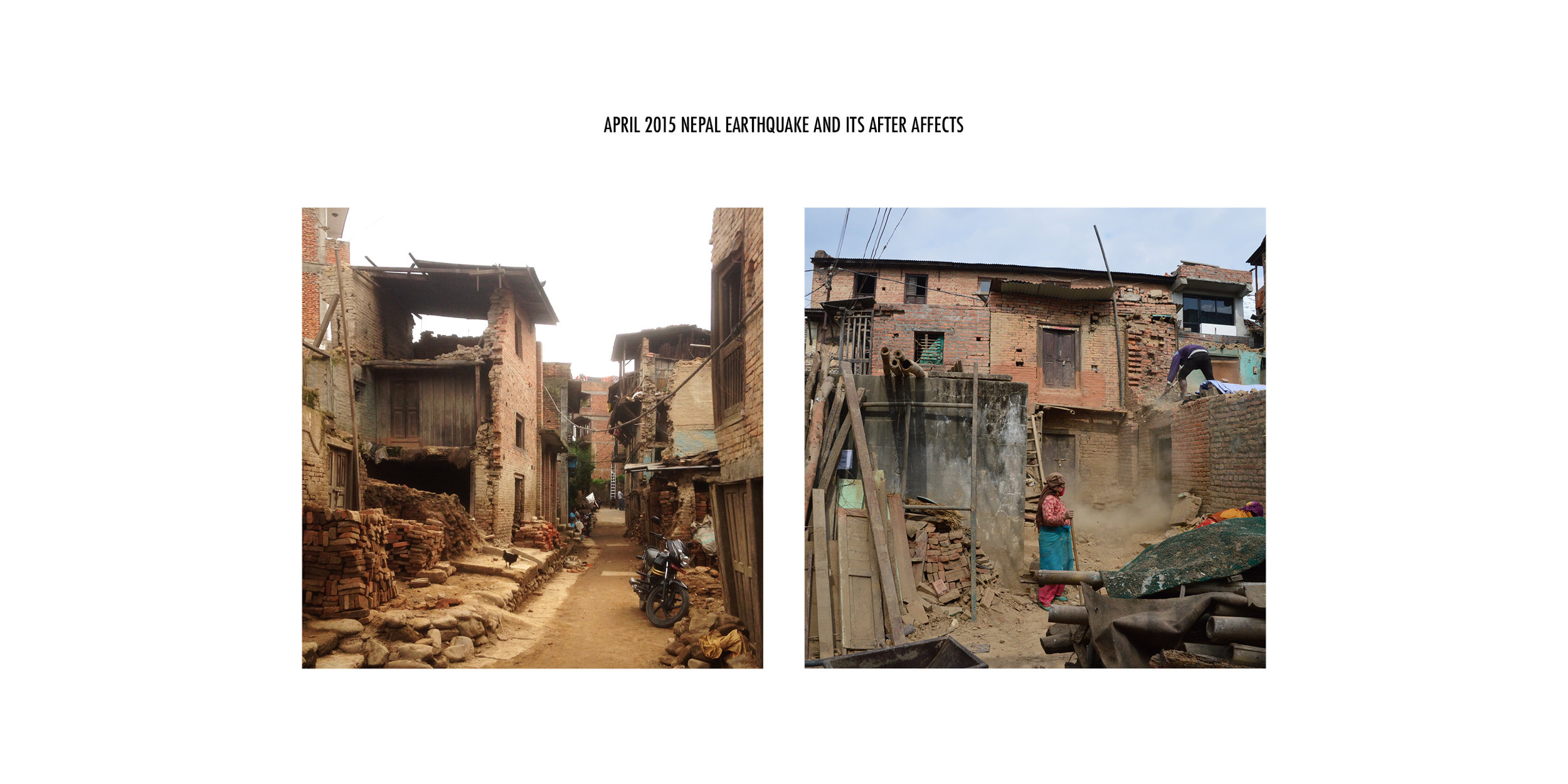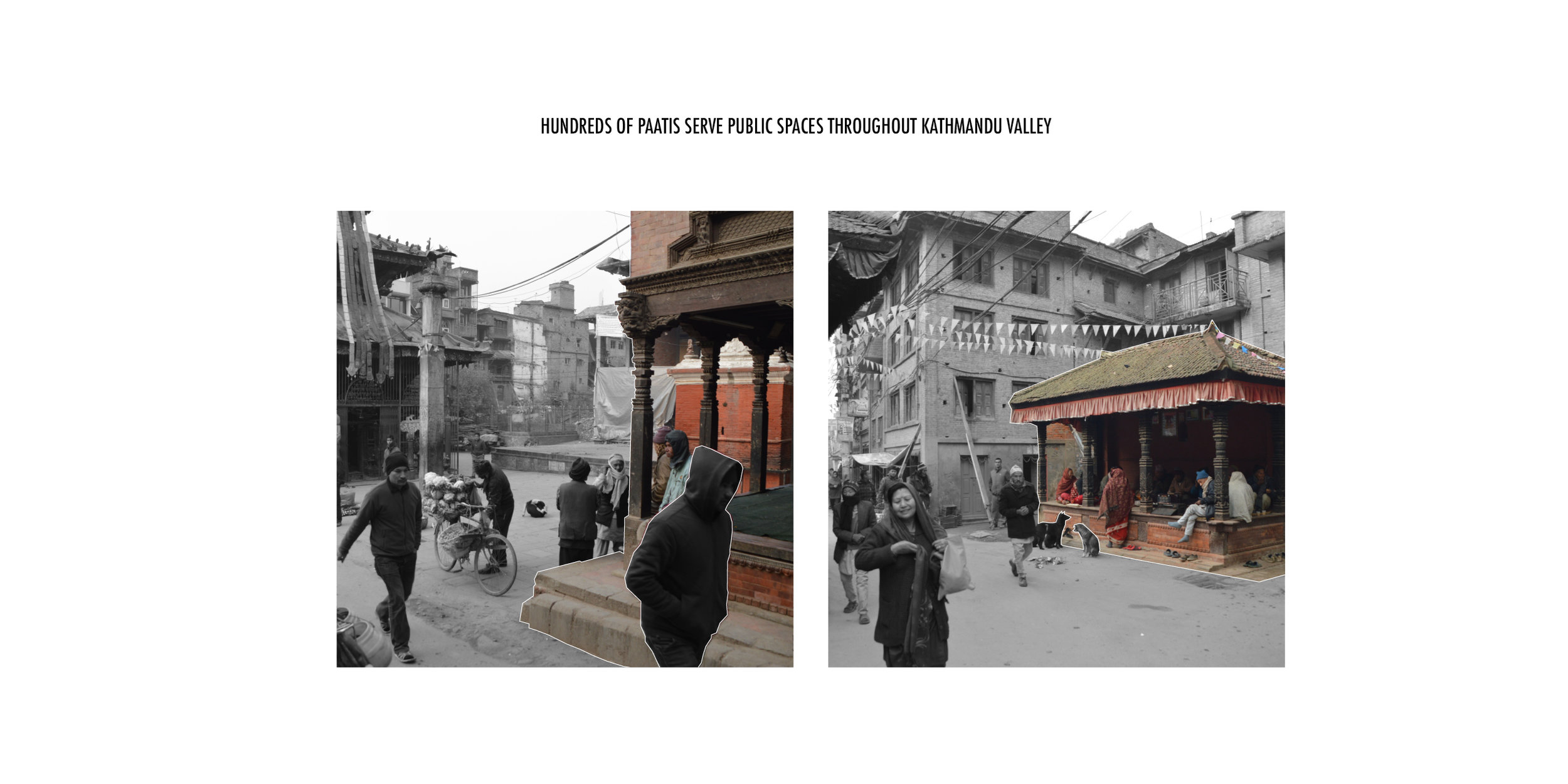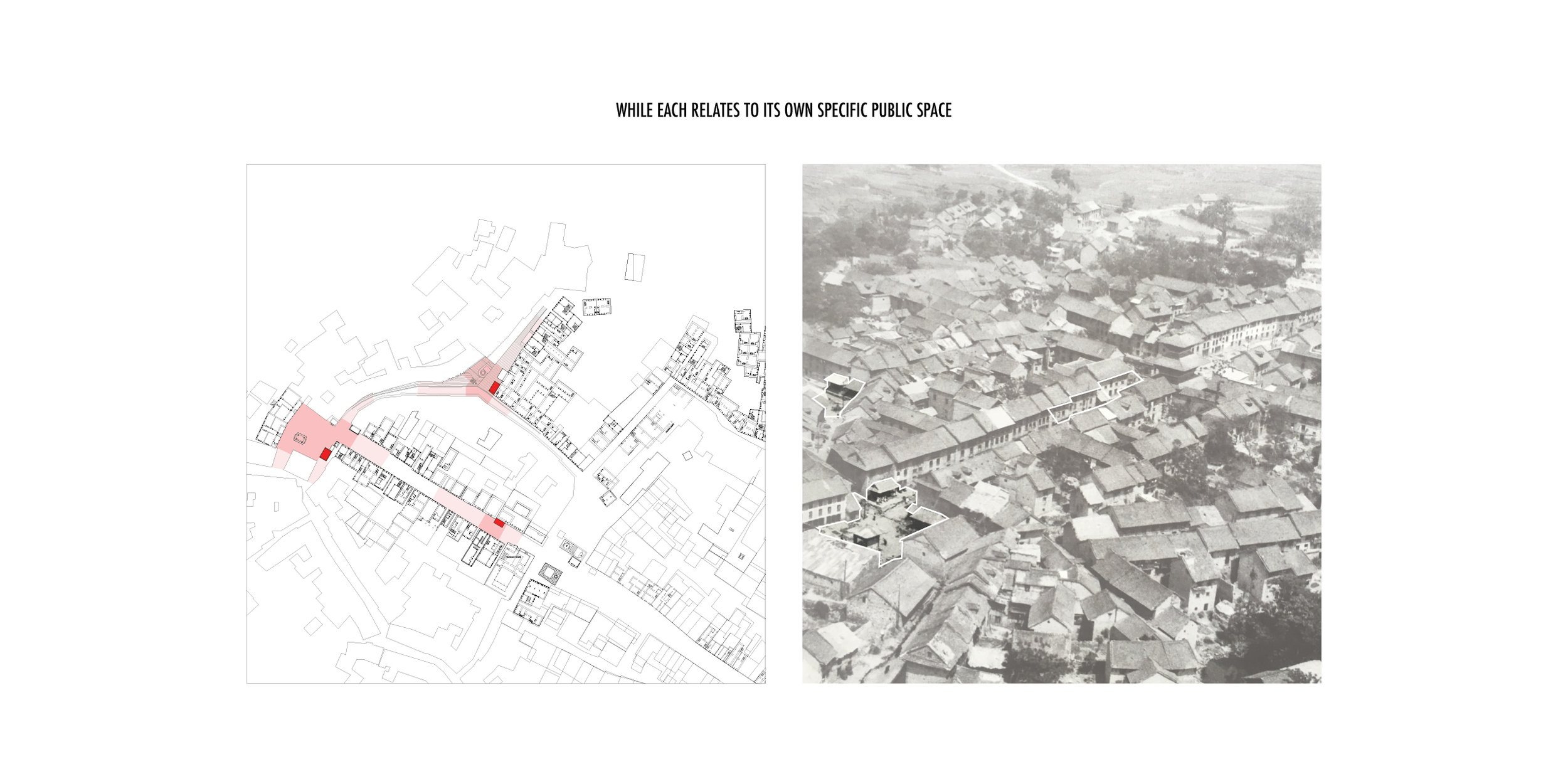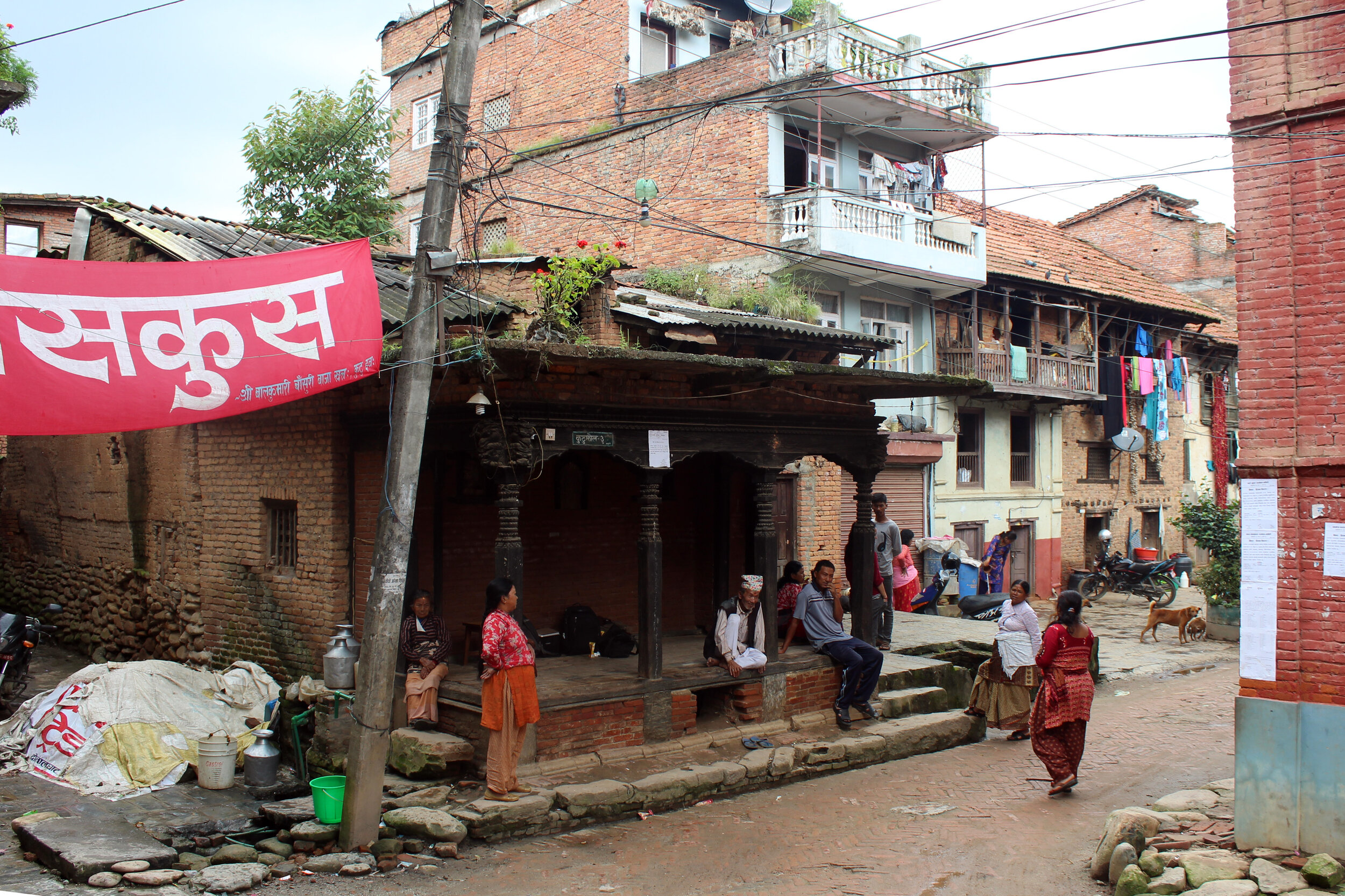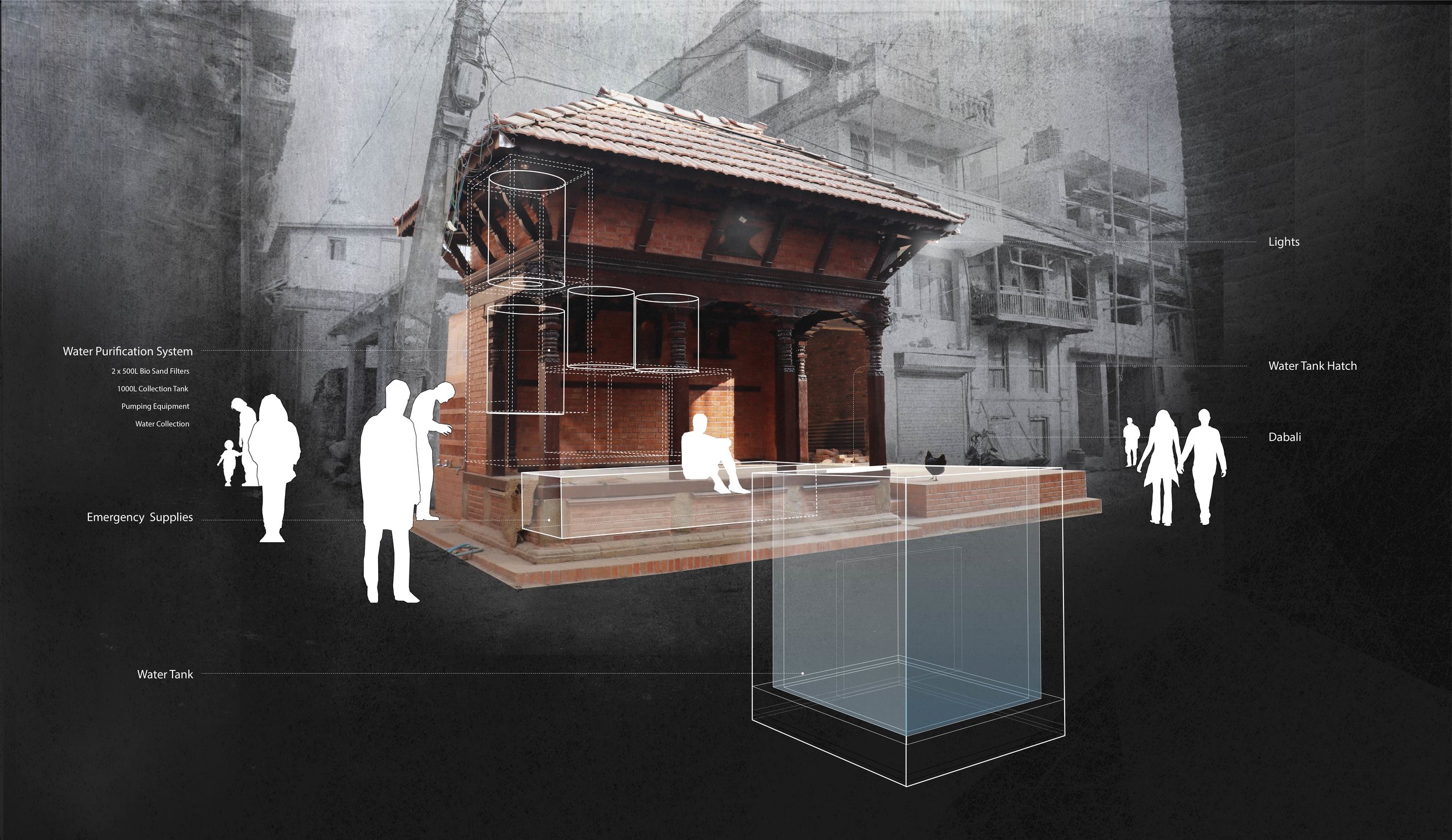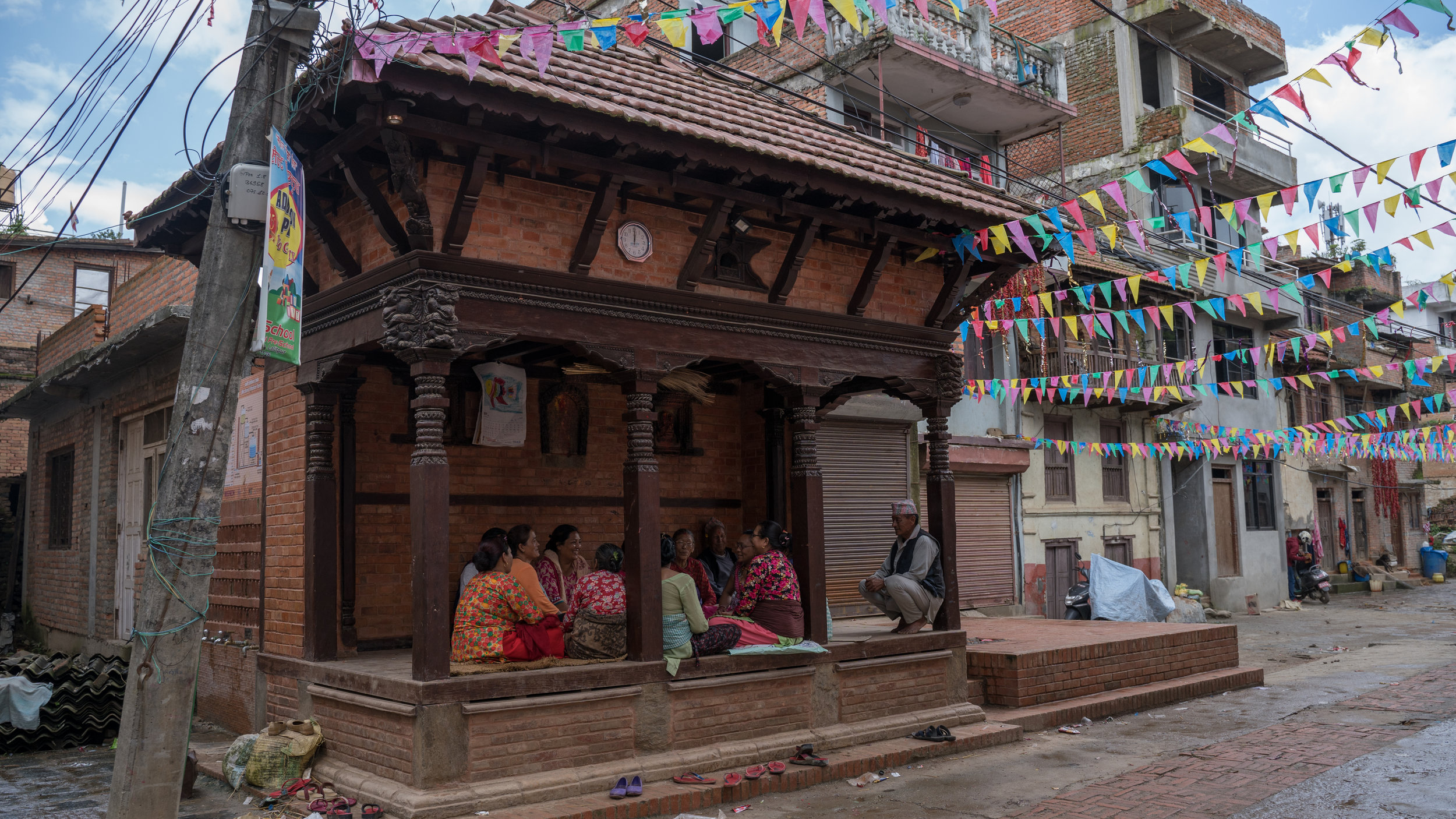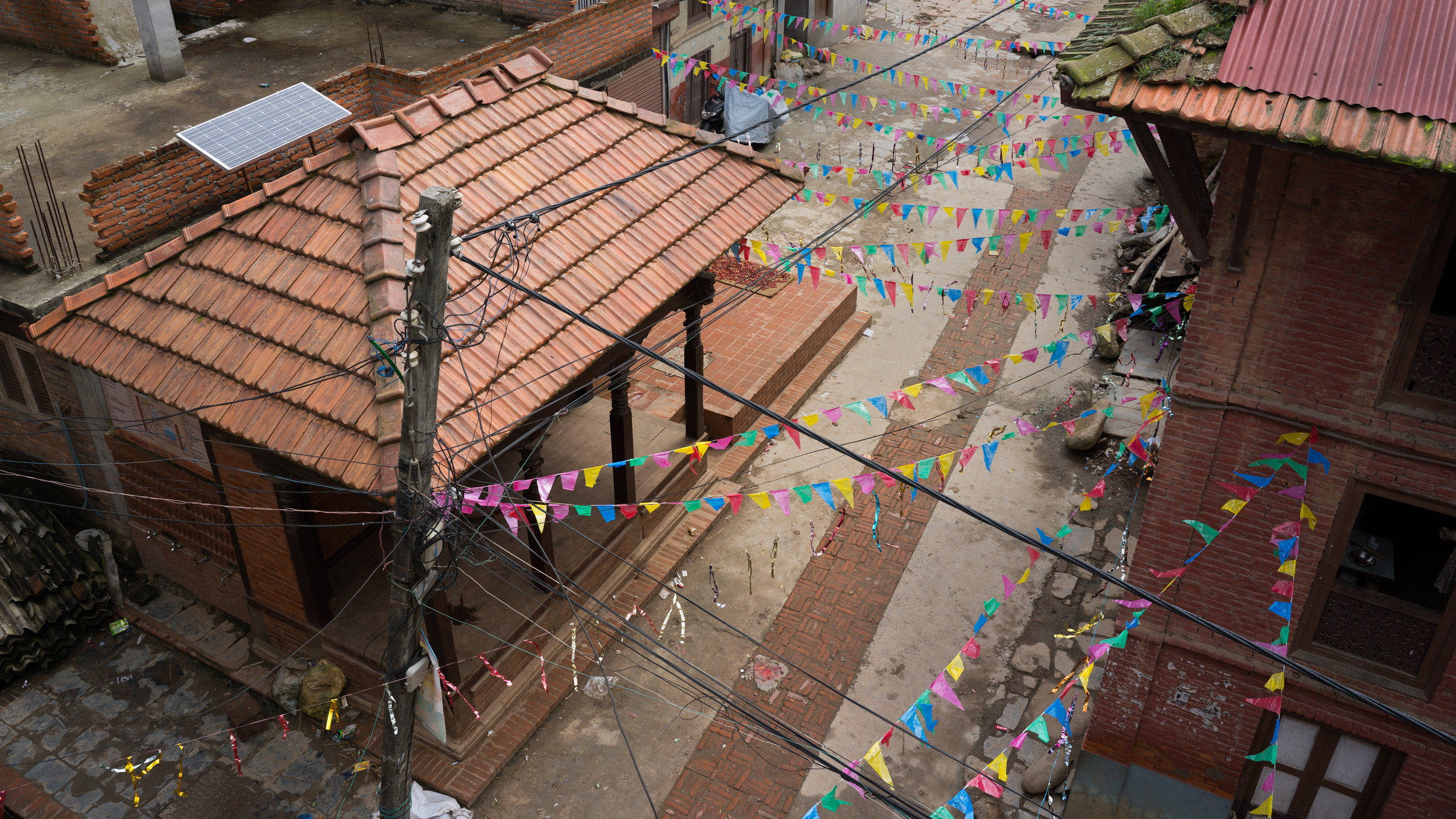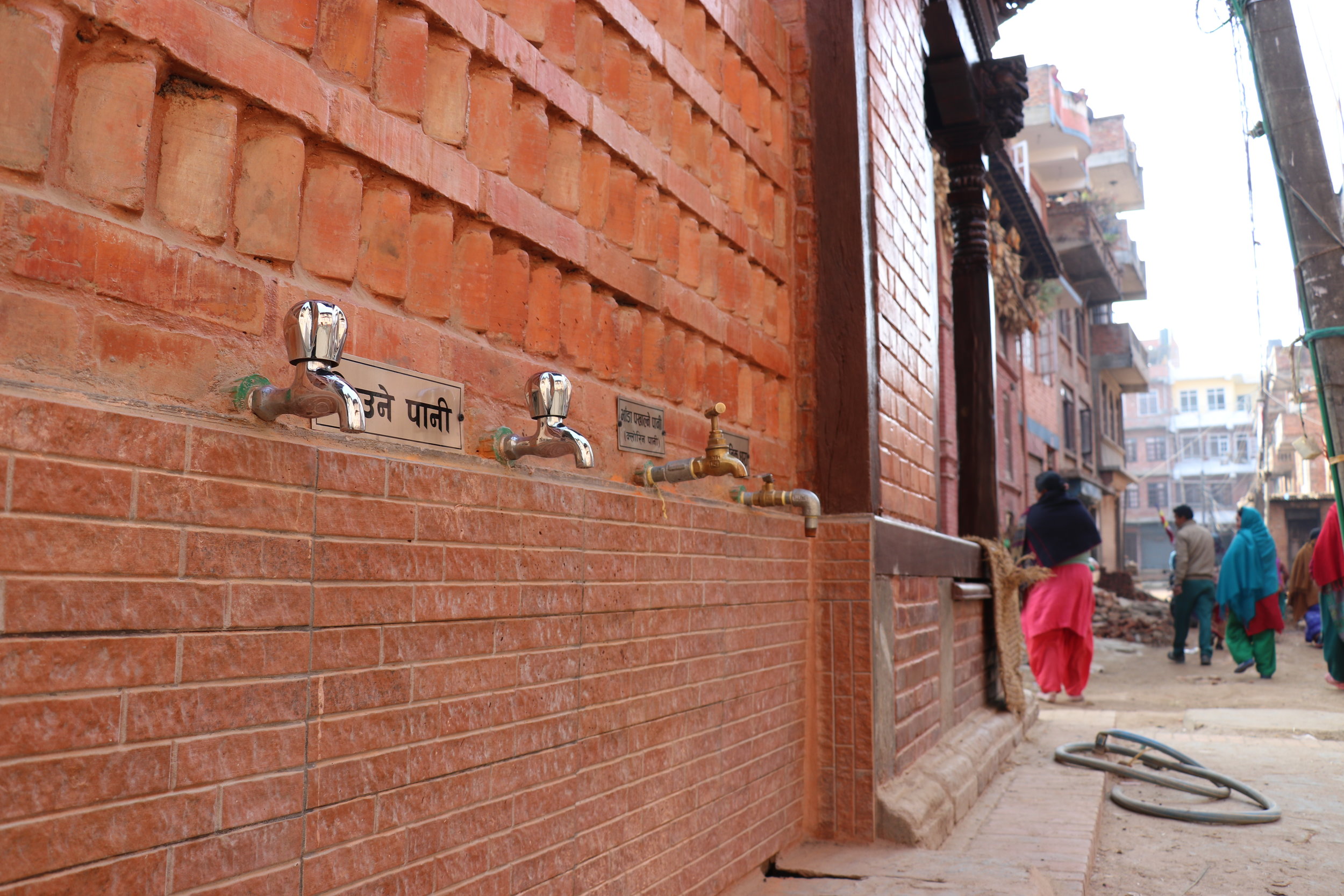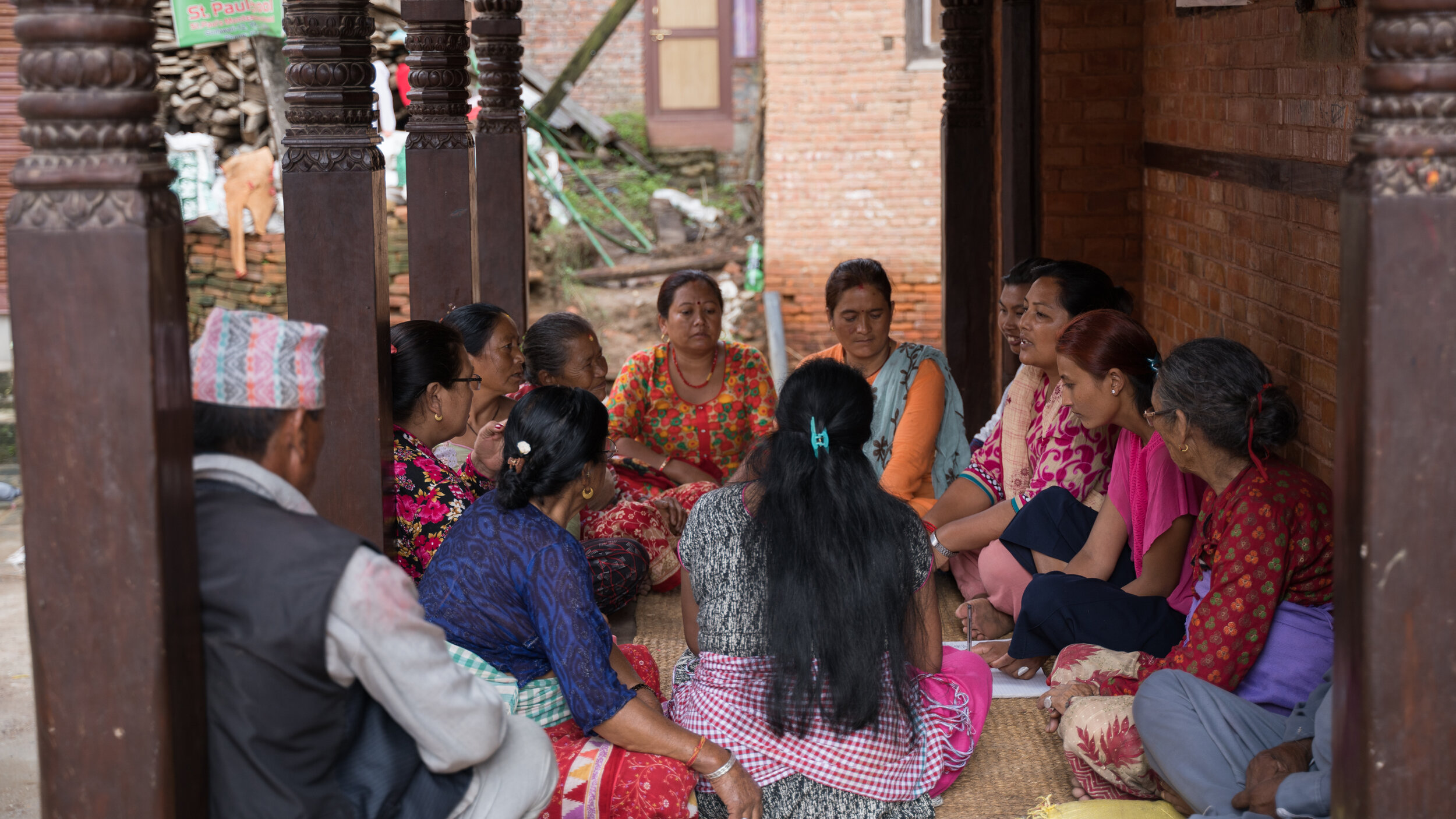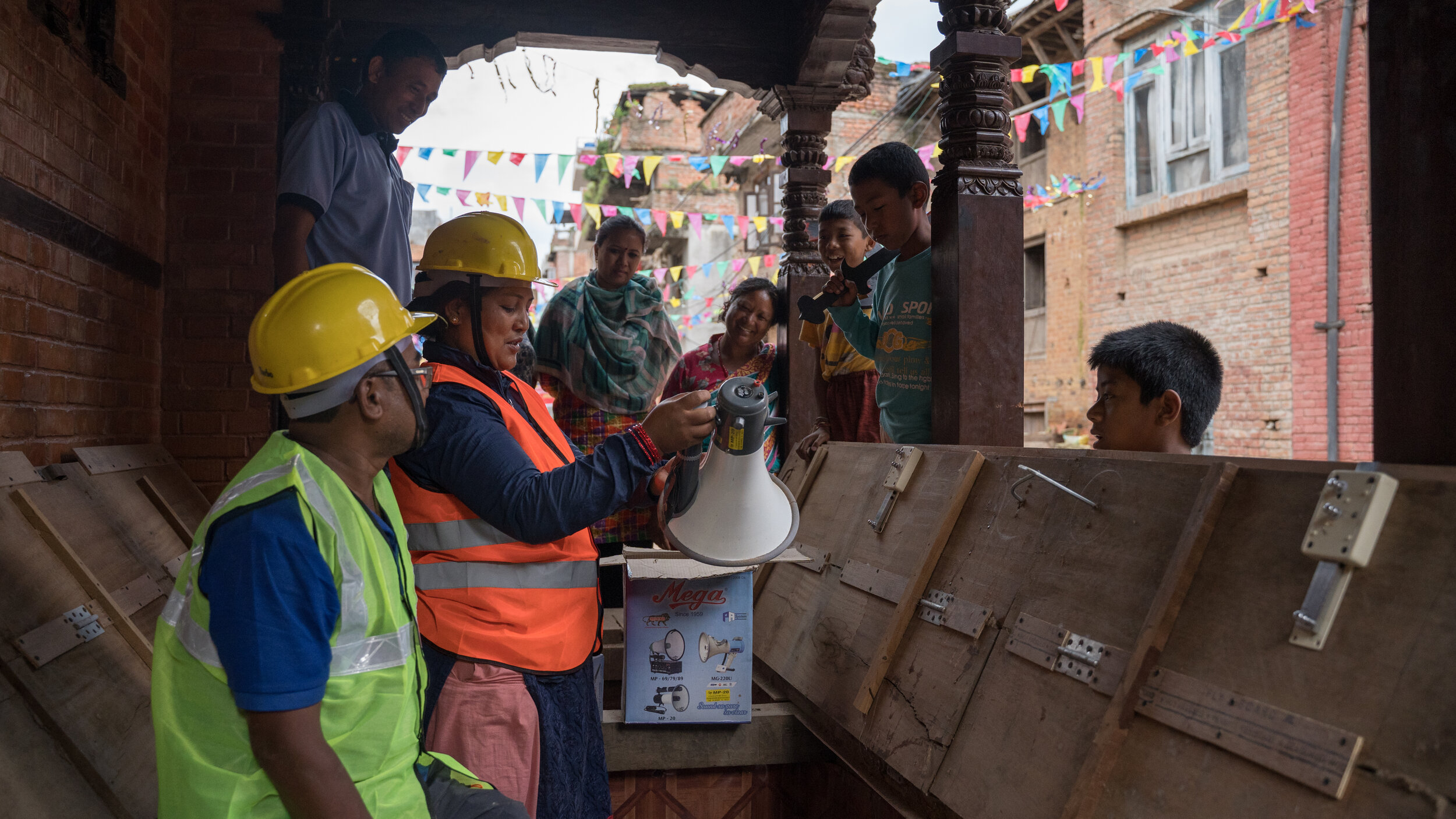PREPHub: Nepal
One of the lessons of the 2015 Nepal Earthquakes was that open space and the infrastructure that supports it is critical to disaster preparedness. In a disaster, communities are the first line of resilience and their access to local infrastructure, such as safe drinking water and power is crucial. In the context of the Kathmandu Valley, where piped water connections are not available in each household, Patis are a place where many people access safe drinking water. These small, public, open-air pavilions provide shelter from the rain and sun, and a place to meet, eat and participate in community activities. Found on almost every street corner, Patis are traditionally managed by local cooperatives and have the potential of supporting communities in times of disaster.
PrepHub Nepal is a proposed design innovation for the post-disaster, degraded Pati infrastructure found throughout the Kathmandu Valley. Our idea is to address disaster preparedness by supporting the role of the Pati as a public space anchor. By embedding technology into Patis the intention is to enhance their public service function, providing infrastructure that can help improve the disaster resilience of the community, while simultaneously tackling issues of everyday life.
Given the critical role public space plays in the Kathmandu Valley in the delivery of water to local communities, the project has begun researching open dug wells and public water spouts often found adjacent to Pati structures. In collaboration with the Environment and Public Health Organization (ENPHO) Nepal, we tested multiple public water sites across the valley for fecal contamination, including Khokana, Bungamati, Lubhu and Thimi. These results have confirmed our assumptions of a high fecal contamination levels, which has allowed for the development of a filtration and storage plan going forward. Other aspects of continuing research include developing strategies for power generation, storage and usage such as public lighting and cell phone charging.
PrepHub Nepal has won MIT IDEAS Global Challenge 2016, Lafarge-Holcim Foundation Acknowledgment Prize 2017 and was a finalist for UN RISK Award, 2017.
MIT Urban Risk Lab: Miho Mazereeuw, Hugh Magee, Aditya Barve, Pamella Goncalves, Johanna Greenspan-Johnston, Noor Titan Putri Hartono.
Lumanti Support Group for Shelter: Yatra Sharma, Kusum Bista, Shristina Shrestha, Lum' sujan Shakya
ENPHO: Environment & Public Health Organization, Kathmandu: Prabina Shrestha
Thecho Mahila and Info-Phalcha Reconstruction Community User Committee: Maheshwori Maharjan
Supported by: MIT TATA Center for Technology and Design, MIT SUTD Partnership : International Design Center, Lafarge Holcim foundation, MIT IDEAS Global Challenge Awards

